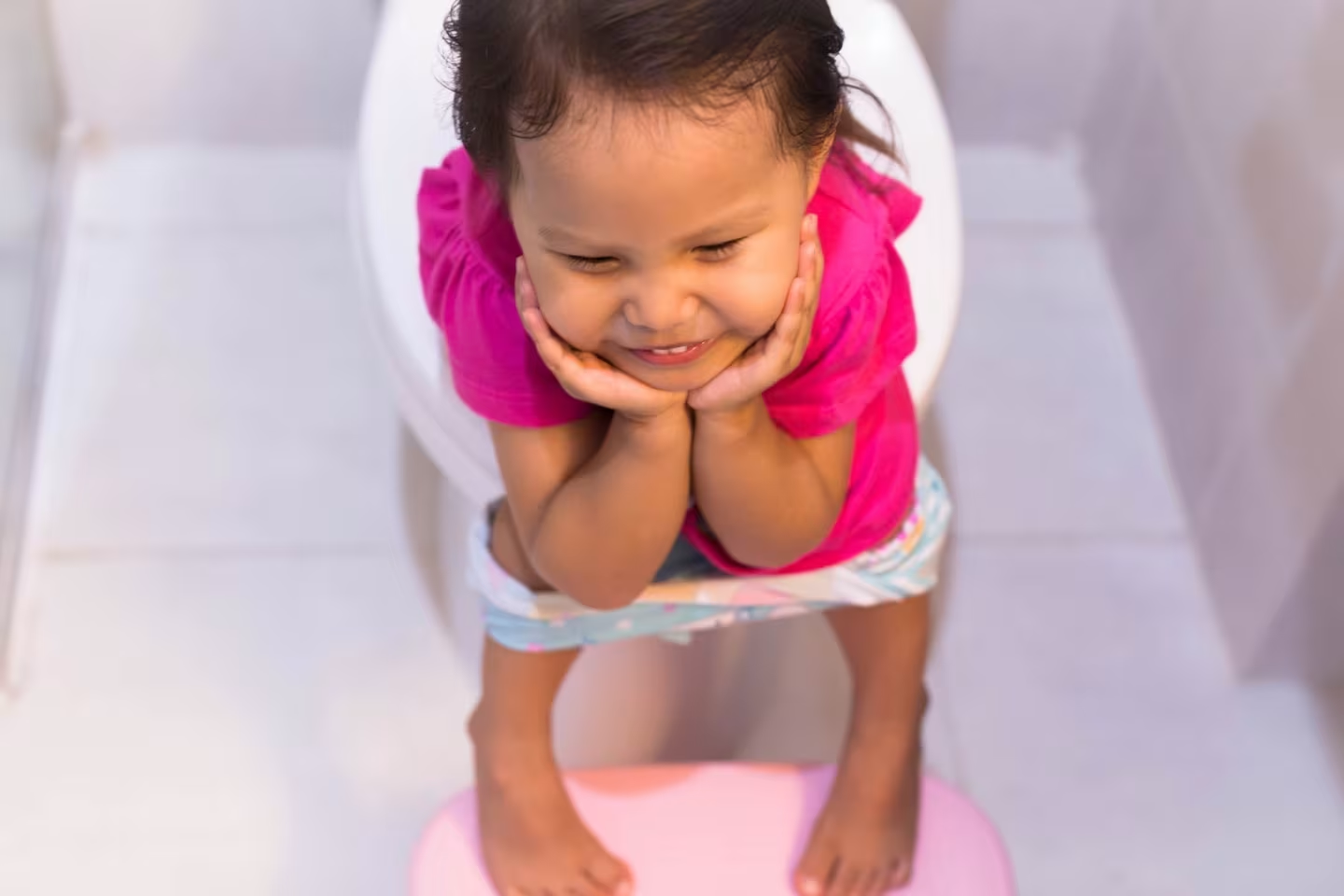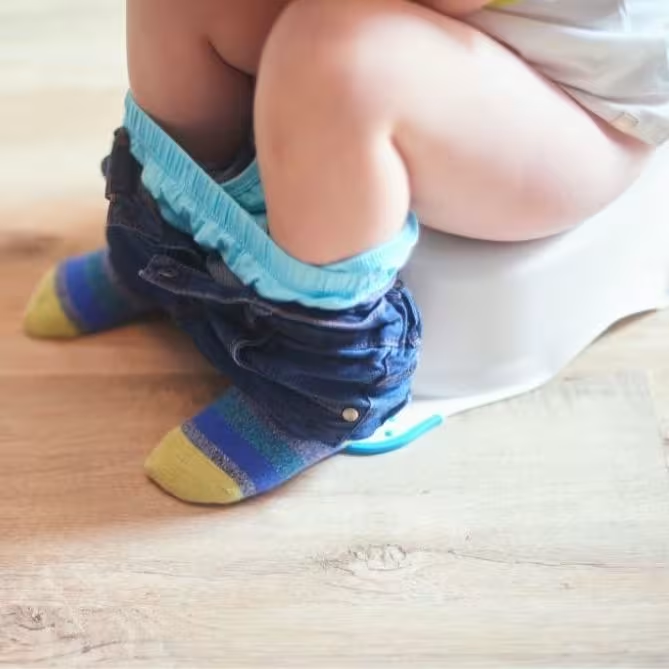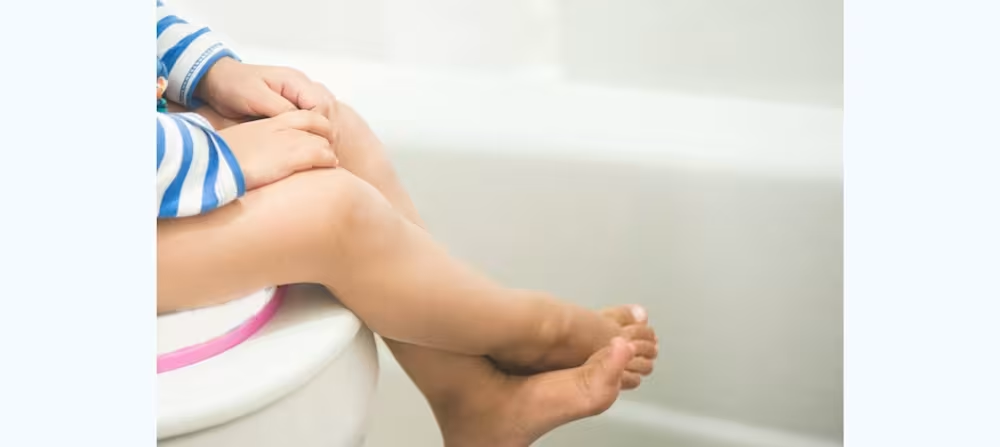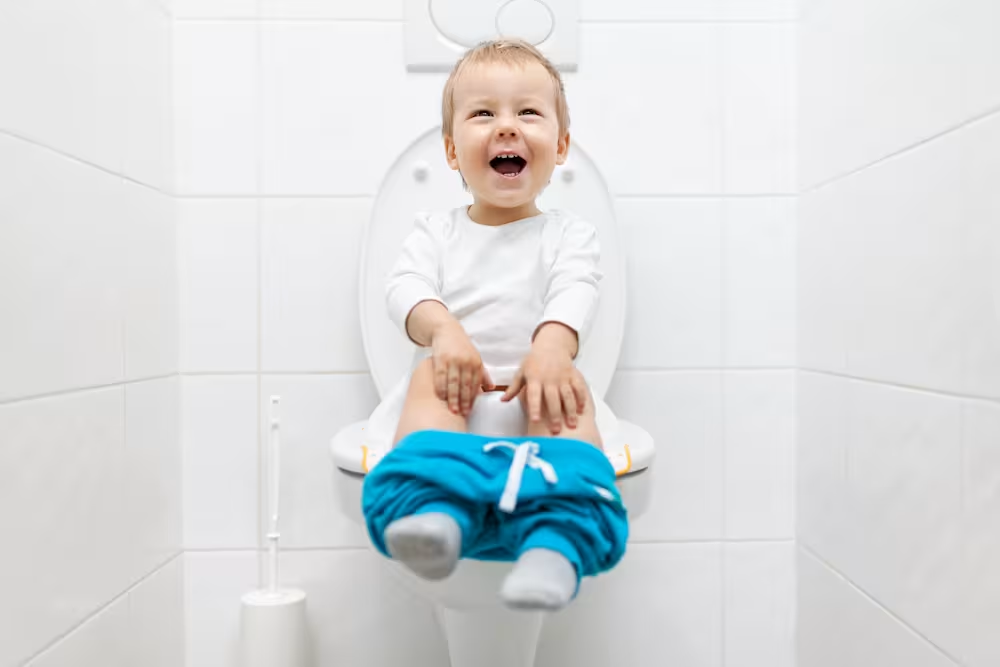Potty training regression: Why it happens and how to handle it
Updated Dec 29, 2025

Picture this: Your child has been doing great with using the potty. They no longer need reminders, they are pooping consistently, and they’re even sometimes! Life is good. Then, out of nowhere, it’s one accident after another and it seems like everything they previously learned went out the window. What gives?!
What is a potty training regression?
This is what we would classify as a regression. A regression is when a child reverts back to a previous stage of behavior or development.
You see, kids are creatures of habit, and they thrive on routines and predictability. So regressions are usually observed when kids are feeling stress as a result of some sort of disruption to their regular routine.
Young children can’t always express their emotions clearly, so instead, they may regress to a time when they remember feeling more safe and secure as a way to seek comfort or extra attention from you. For many children, that safety and security come through the intimacy of being changed by their parent or caregiver, and that can lead to them having more potty accidents.
Falling into a potty training regression is a child’s way of saying, “Help me. I’m feeling out of sorts, and I need extra love and attention from you right now.”
What do potty training regressions look like?
Regressions can come in many forms:
Having more accidents during the day
No longer self-initiating potty use
Wetting themselves during naps or nighttime when they were previously dry
No longer pooping in the potty
No matter how a regression presents itself, it obviously leads to a lot of frustration and uncertainty for you!
Why do potty training regressions happen?
Let’s take a look at some scenarios that may cause a regression:
Here comes new baby!
When a new baby joins the family, there are a lot of changes that take place for everyone, especially the big brother or sister! For many kids, this will be the first time they have to share their caregivers. And if they see the new baby getting lots of attention during diaper changes, it could lead them to start having accidents so they get that same connection as well.
Moving to a new home.
Moving to a new house can cause loads of disruption. Not only are you busy packing and unpacking, but your child will have to get used to a whole new room, a new neighborhood, and new bathrooms, too! All of the uncertainty can lead to potty accidents.
Poop problems.
If your kiddo end ups with constipation, it can result in more accidents — and in this case, it isn’t their fault. When we’re constipated, it puts extra pressure on our bladder, which can reduce sensitivity and increase urgency. You may notice more bedwetting when your little one is constipated as well.
Classroom changes.
For kids who go to daycare or preschool, it can become pretty close to their home away from home. If things get disrupted there, such as changing to a new classroom, getting a new teacher, or a friend moving away, more accidents can start soon behind.

How to manage a potty training regression
So, how do you help your kiddo get back on track with their potty use after a regression? Here are four steps you can take.
Step 1: Identify the cause
First, be sure that the regression isn’t linked to an underlying medical issue. Things like constipation, stomach viruses, or UTIs can lead to an increase in accidents, so a quick call to the pediatrician could be in order.
If medical problems can be ruled out, think about recent changes or disruptions in your lives. Nailing down the cause of the regressive behavior will be important in determining the best way to handle it.
Step 2: Remain consistent in your potty routine
Avoid going back to diapers! Children gain comfort from predictability, and the last thing you want to do is introduce yet another change or have them feel as though you’ve lost faith in their abilities.
You may need to take a step back and start offering gentle prompts again at certain times of the day, or even extra praise and rewards for their success. Respond to all accidents in the same calm, matter-of-fact way, encouraging them to try again next time. Scolding or shaming will only do more harm than good.
Step 3: Be there for your child emotionally
Change can be really hard for young kids to deal with. Carve out at least a few minutes of each day to have some dedicated time to focus on your child. No phones, chores, TV, or distractions — just you connecting with them doing an activity of their choice. If the regression is attention-seeking, this will help them fill their “attention tank” without having to resort to potty accidents.
Step 4: Stay positive
Instead of putting all your energy and focus into the accidents, catch your child doing good potty behaviors and offer lots of praise or even a reward for their efforts. If your child sees that they are only getting the attention they crave from using the potty and not from having accidents, that regressive behavior should fade fairly quickly.
Believe it or not, regressions are fairly common. If this is happening to you right now, know you are not alone! That said, it doesn’t make it any less difficult or frustrating, for both you and your kiddo. Do your best to remain positive and consistent, and offer them some extra love. Most regressions will only last for about 2 weeks or less, so before you know it, they’ll be back to using the potty reliably again!
Share article:
Note: The content on this site is for informational purposes only and should not replace medical advice from your doctor, pediatrician, or medical professional. If you have questions or concerns, you should contact a medical professional.
1 Sources
Share article:






